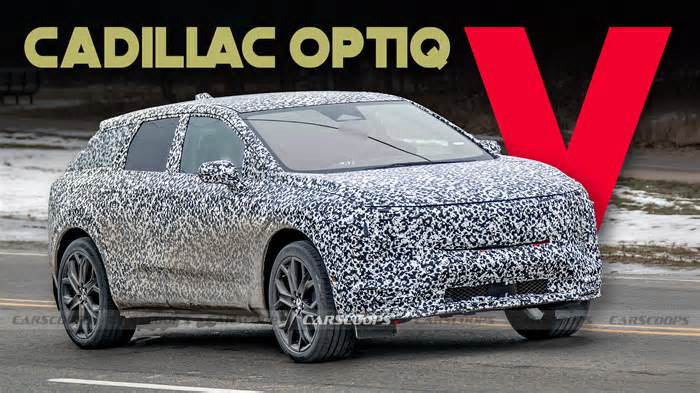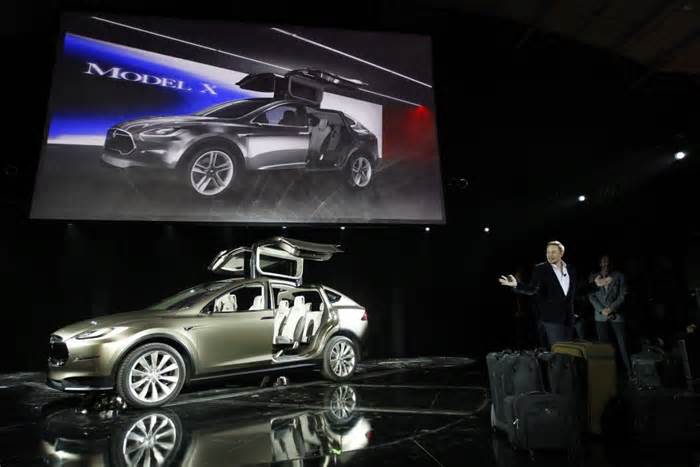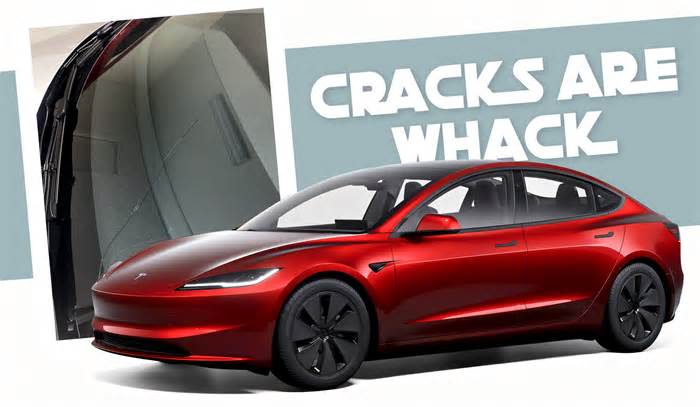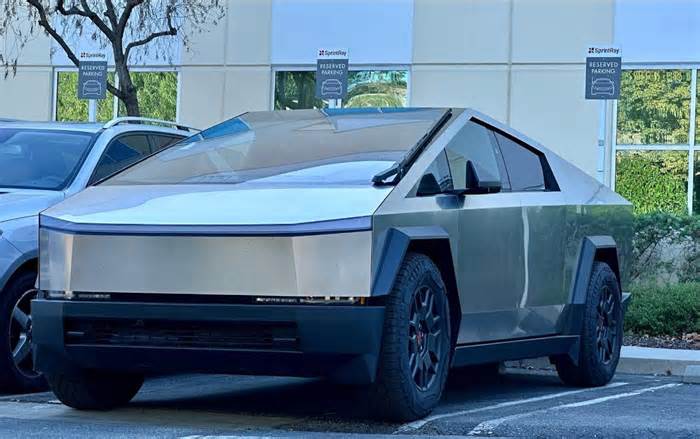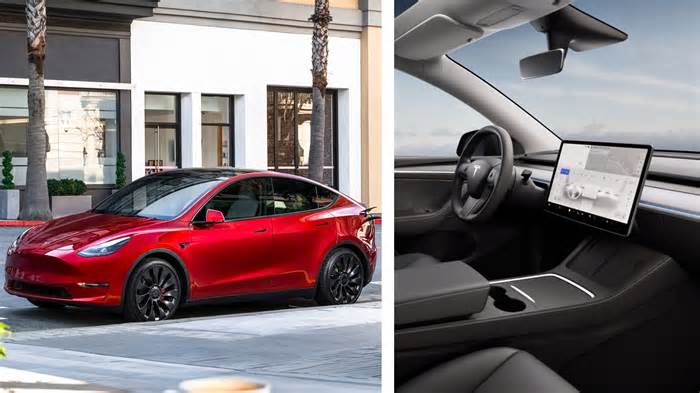
Trump's transition team aims to kill Biden EV tax credit, sources say
- by Columbus Dispatch
- Nov 25, 2024
- 0 Comments
- 0 Likes Flag 0 Of 5
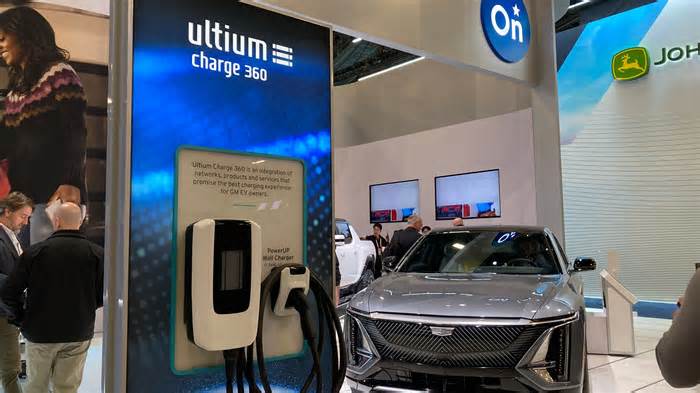
More:Car dealer elected to US Senate: Trump and I share vision for overhauling auto industry
Representatives of Tesla and Ford did not respond to requests for comment Thursday. GM and Stellantis declined to comment.
The Alliance for Automotive Innovation urged Congress in an Oct. 15 letter to retain the EV tax credits, calling them "critical to cementing the U.S. as a global leader" in future auto manufacturing.
The Trump transition team did not comment on the fate of the EV tax credit but said in a statement that the president-elect would deliver on "promises he made on the campaign trail."
Trump campaigned on ending Biden's "EV mandate," without spelling out specific targeted policies. The energy-focused transition team has determined some of Biden's clean-energy policies will be tough to end because they are popular and already funneling money to Republican-dominated states, the sources said.
The team views the consumer EV credit as an easy target, believing that eliminating it would get broad consensus in a Republican-controlled Congress.
Trump could use the cost savings from killing the credit to help pay for the extension of trillions of dollars in tax cuts from his first term that are set to expire soon, the two sources said. Congressional Republicans plan to take up the broader tax bill as one of their first actions.
Energy transition team members expect the Republican Congress will deploy a legislative measure known as reconciliation to avoid relying on Democratic votes. Biden used the same tactic to pass the IRA.
Killing EV tax credits is strongly supported by Hamm, a long-time Trump supporter, along with the broader oil-and-gas industry.
Trump promised while campaigning to boost U.S. oil production, even as it has hit record highs, and to roll back Biden’s clean-energy initiatives, which also include subsidies for wind and solar power and the mass production of hydrogen.
Shares of South Korean battery makers tanked on Friday after the Reuters report. LG Energy Solution 373220.KS, a supplier for Tesla, General Motors and other automakers, fell as much as 10%, while Samsung lost 9.6%.
Why Tesla could benefit
Tesla has historically been the biggest beneficiary of consumer EV subsidies passed by Biden and previous administrations. It now may stand to gain from killing the incentive because that could hurt rising EV competitors more than Tesla.
Musk himself pointed out as much in a July earnings call, saying losing the subsidy under Trump would "probably benefit Tesla" in the long term.
Tesla sold just under half of all U.S. EVs in the third quarter, according to data from Cox Automotive. Other automakers with notable EV sales such as GM, Ford and Hyundai, individually trail far behind. But Tesla’s U.S. EV rivals collectively have steadily eroded its market share, which exceeded 80% in the first quarter of 2020.
Nicholas Mersch, portfolio manager at Purpose Investments, a Tesla investor, said Tesla can withstand a potential sales hit from losing subsidies because the automaker's “engineering and manufacturing prowess" lowers its costs.
“Getting rid of the subsidy means that competitors can’t catch up and won’t be able to compete on a cost basis," Mersch said.
Musk and Tesla also stand to gain hugely from Biden policies that Trump will likely leave in place or strengthen - like steep trade barriers blocking imports of Chinese EVs, including a 100% tariff.
Chinese EV makers led by Tesla rival BYD have rocketed past the rest of the industry, with the help of generous government subsidies. Electric vehicles and hybrids have accounted for more than half of all cars sold in recent months in China, the world’s largest auto market.
Tesla is a major player in China but, like all foreign automakers, has been recently losing market share to homegrown players that sell EVs for as little as $10,000.
Tesla "can't beat Chinese EVs," Mersch said, but with Trump's help may be able to keep them out of the U.S. market.
Mike Murphy, a longtime Republican strategist who runs the EV Politics Project — an advocacy group seeking bipartisan EV support — described ending the subsidy as a "Tesla first, everybody else second" policy.
He described the move as "really bad for American automakers" trying to catch up to highly subsidized Chinese EV industry.
"The Trump administration is proving they have absolutely no interest in helping the U.S. auto industry survive the coming Chinese invasion," he said.
Please first to comment
Related Post
Stay Connected
Tweets by elonmuskTo get the latest tweets please make sure you are logged in on X on this browser.
Sponsored
Popular Post
tesla Model 3 Owner Nearly Stung With $1,700 Bill For Windshield Crack After Delivery
34 ViewsDec 28 ,2024
Middle-Aged Dentist Bought a Tesla Cybertruck, Now He Gets All the Attention He Wanted
32 ViewsNov 23 ,2024






 Energy
Energy




